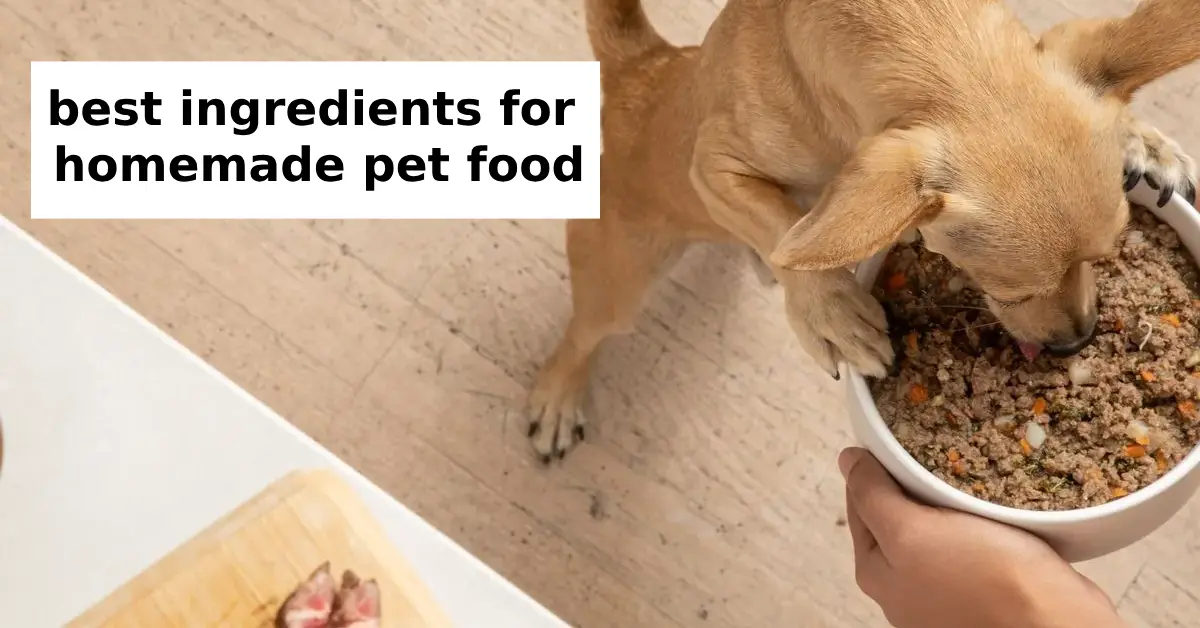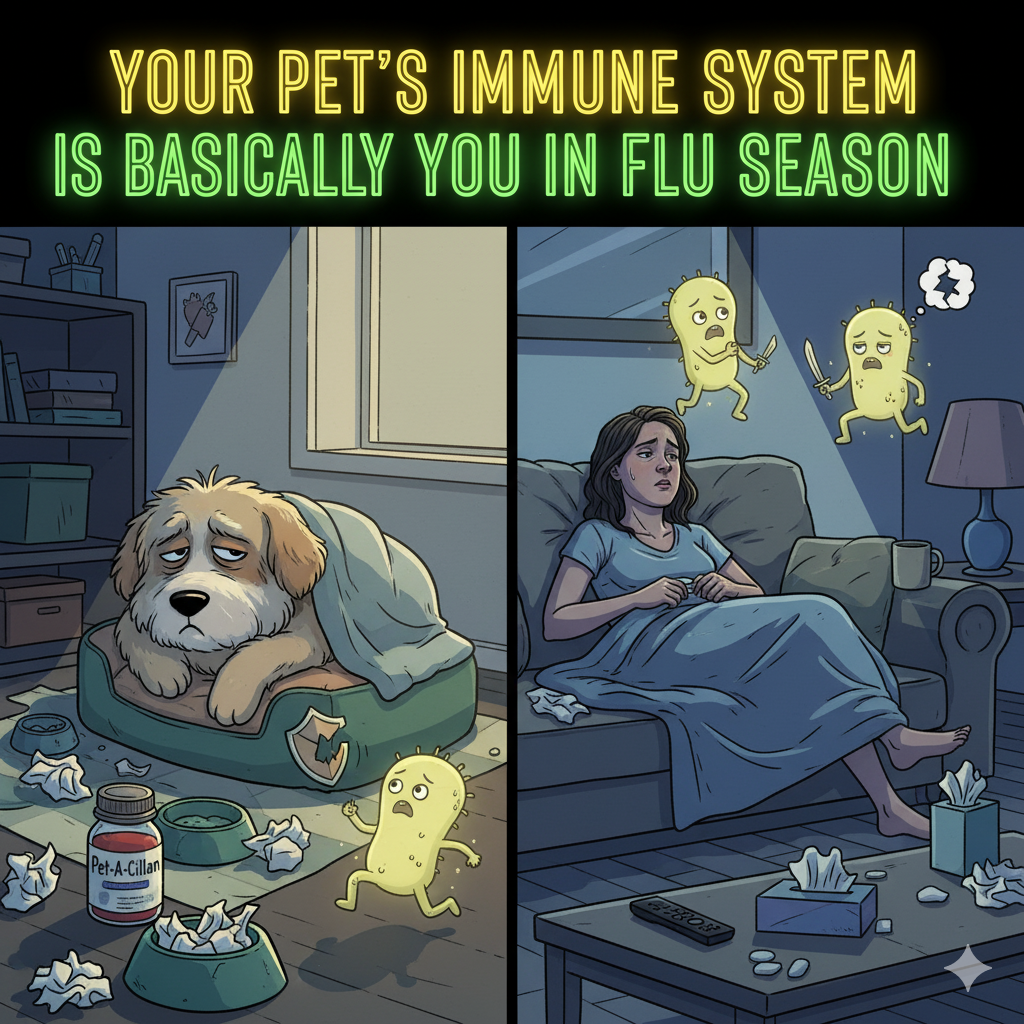What Are the Best Ingredients for Homemade Pet Food?
In today’s health-conscious world, pet parents are becoming increasingly aware of what goes into their furry friend’s bowl. As concerns rise around the quality and safety of commercial pet foods, many dog and cat owners are turning to homemade meals. But creating a balanced, nutritious, and affordable meal at home requires more than just love — it demands knowledge.
This guide reveals the best ingredients for homemade pet food, helping you craft meals that are not only delicious but also vet-approved and nutritionally sound. Whether you’re catering to allergies, digestion issues, or simply prefer natural feeding, this post covers everything you need.
Why Choose Homemade Pet Food?
Homemade pet food allows you to control exactly what your pet eats. This is ideal for:
- Pet parents concerned about commercial pet food quality
- People with pets suffering from allergies or digestion issues
- Health-conscious families who want the same for their pets
- DIY-savvy individuals interested in pet food recipes
By using natural ingredients for pet food, you reduce the risk of harmful preservatives, fillers, and artificial additives.
1. Best Protein for Homemade Dog Food
Protein is the foundation of any healthy diet. It fuels energy, supports muscle development, and enhances immunity.
Top Protein Sources:
- Chicken: Lean and digestible. Great for dogs with sensitive stomachs.
- Turkey: Low-fat alternative, especially good for weight management.
- Beef: Rich in iron and zinc.
- Salmon: High in omega-3 fatty acids, supports a shiny coat.
- Lamb: Excellent for pets with food sensitivities.
- Eggs: Complete protein with essential amino acids.
In vet-approved homemade dog food recipes, protein should make up about 50–75% of the meal.
2. Whole Grains and Carbohydrates (Optional for Dogs, Avoided for Cats)
While many commercial foods overload on grains, some grains can be beneficial in moderation—especially for dogs.
Safe Carbohydrates:
- Brown rice
- Oats
- Quinoa
- Sweet potatoes
For cats, opt for grain-free homemade cat food, as felines are obligate carnivores and digest carbohydrates poorly.
3. Vegetables and Fruits: Nature’s Supplements
Vegetables and fruits supply essential vitamins, minerals, and fiber. They also help balance the diet naturally.
Dog-Approved Veggies:
- Carrots (for beta-carotene)
- Green beans (low-calorie fillers)
- Peas (protein-rich)
- Spinach (iron-rich, in moderation)
- Pumpkin (digestive health)
Pet-Friendly Fruits:
- Apples (without seeds)
- Blueberries (antioxidants)
- Bananas (potassium)
- Watermelon (hydration)
These are perfect additions to your home cooked meals for dogs and cats, making them both tasty and nutrient-rich.
4. Healthy Fats for Shiny Coats & Energy
Fats are crucial for your pet’s skin, coat, brain, and energy levels. When preparing DIY organic pet food ingredients, healthy fats play a key role.
Best Fat Sources:
- Fish oil (omega-3)
- Coconut oil (antimicrobial properties)
- Olive oil (heart health)
- Chicken fat or skin (palatability and calories)
Include fats moderately — usually 10–15% of the meal. Overfeeding can lead to weight gain.
5. Calcium and Bone Health
A balanced homemade pet diet must include calcium and phosphorus, especially for growing puppies or kittens.
Natural Calcium Sources:
- Crushed eggshells (baked and ground)
- Sardines (with bones)
- Bone meal (vet-approved only)
- Plain yogurt (for dogs only, in moderation)
Skipping calcium can lead to bone deformities and joint issues.
6. Supplements to Consider
Sometimes, whole foods don’t cover all nutritional bases. The nutritional homemade dog food guide recommends these supplements:
- Multivitamins: To cover trace minerals
- Taurine: Essential for cats
- Glucosamine: For joint support in aging dogs
- Probiotics: Boost digestive health
- Digestive enzymes: Aid in nutrient absorption
Always consult a vet before adding supplements, especially for pets on vet-recommended custom diets.
7. Holistic Pet Food Ingredients for Wellness
Holistic pet care means considering the animal’s body, mind, and spirit. That philosophy applies to food too.
Top Holistic Ingredients:
- Turmeric: Anti-inflammatory
- Ginger: Supports digestion
- Apple cider vinegar: Natural detox
- Parsley: Freshens breath and detoxifies
- Chia seeds: Omega-3 and fiber
These holistic pet food ingredients can be added in small amounts to enhance health naturally.
8. Homemade Dog Food Recipes Vet Approved
Here’s a basic vet-approved recipe to get you started:
Chicken and Veggie Delight (Serves 2 medium dogs)
- 2 cups cooked, shredded chicken
- 1 cup cooked carrots and peas
- 1 cup brown rice
- 1 tbsp olive oil
- ½ tsp crushed eggshells
- Optional: parsley or turmeric for added health
Mix and serve warm. Ensure proper portioning based on weight.
9. Grain-Free Homemade Cat Food Recipe
Cats require high-protein, grain-free meals. Try this simple dish:
Tuna & Chicken Cat Feast
- 1 can tuna in water (drained)
- ½ cup cooked chicken (chopped)
- 1 tbsp pumpkin puree
- 1 boiled egg (mashed)
- ¼ tsp taurine powder (optional but recommended)
Blend lightly and serve fresh.
10. Affordable Homemade Pet Meals
Worried about budget? Many affordable homemade pet meals use seasonal produce and bulk meats. Buying in larger quantities and freezing portions can reduce weekly costs drastically.
Helpful tip: Use leftovers from your own meals (unseasoned) when suitable — like plain rice, boiled eggs, or steamed veggies.
Conclusion:
Creating the best ingredients for homemade pet food doesn’t need to be complicated. It’s about combining quality proteins, healthy fats, essential veggies, and appropriate supplements. Pet parents who put effort into home-cooked meals often see improvements in energy levels, coat shine, and overall mood in their pets.
Whether you’re making meals for a pup with a picky palate or a cat with sensitive digestion, these recipes and ingredients can help you deliver the nutrition they deserve.






3 thoughts on “What Are the Best Ingredients for Homemade Pet Food?”